The second "Adult Nasointestinal Tube Catheterization and Maintenance Standards Training Course" was successfully held in Beijing
From April 24th to 27th, 2025, the second "Adult Nasointestinal Catheterization and Maintenance Standards Training Course" was successfully held in Beijing, hosted by the Chinese Geriatrics Society and organized by the National Clinical Research Center for Geriatric Diseases (PLA General Hospital) and the Department of Gastroenterology of the Second Medical Center of PLA General Hospital. This training course, themed "Excellence in Professionalism, Quality Assurance, and Intelligent Future", attracted over a hundred nursing experts and colleagues from all over the country to participate in this grand event, jointly discussing the cutting-edge technologies and practical experiences in this field.
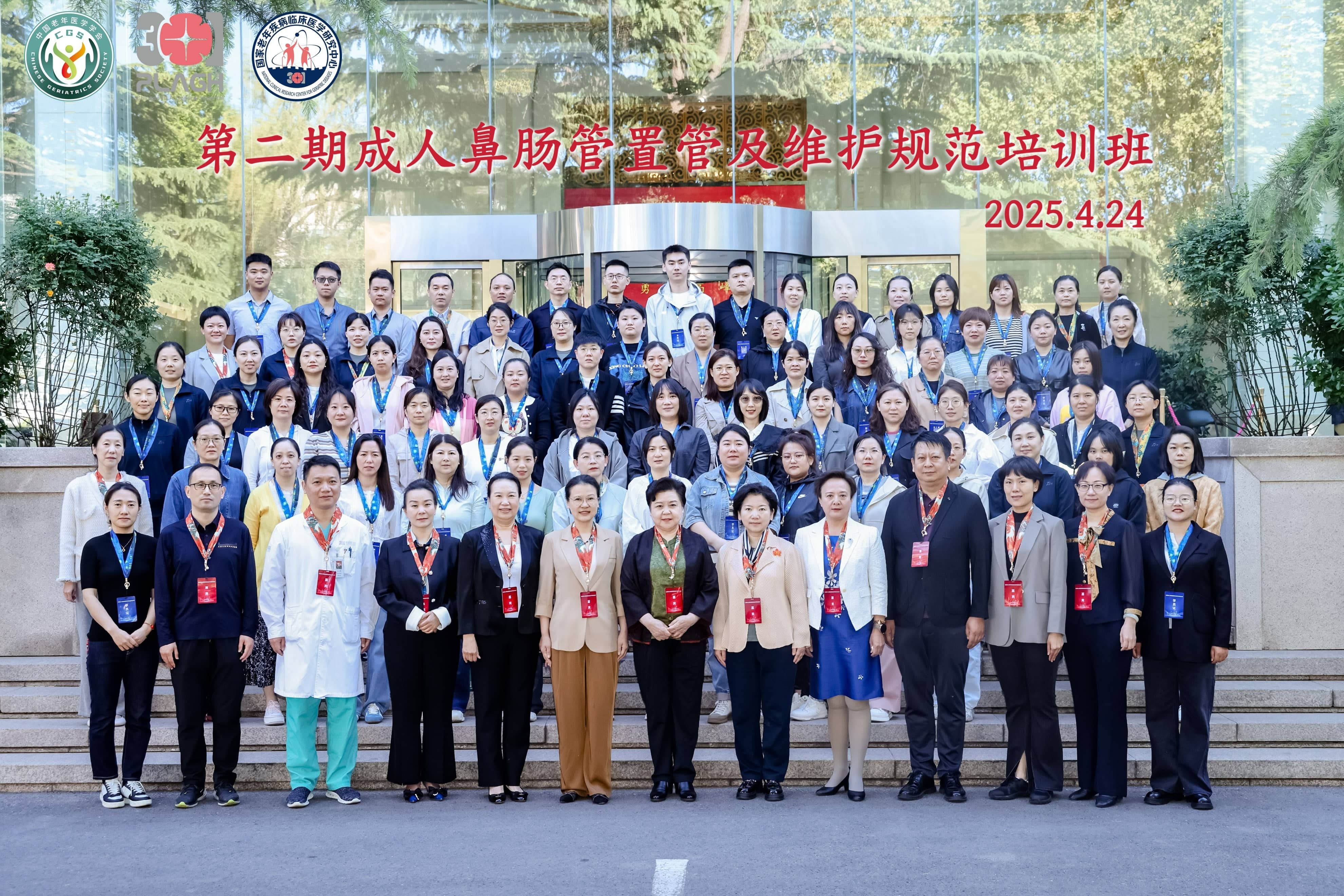
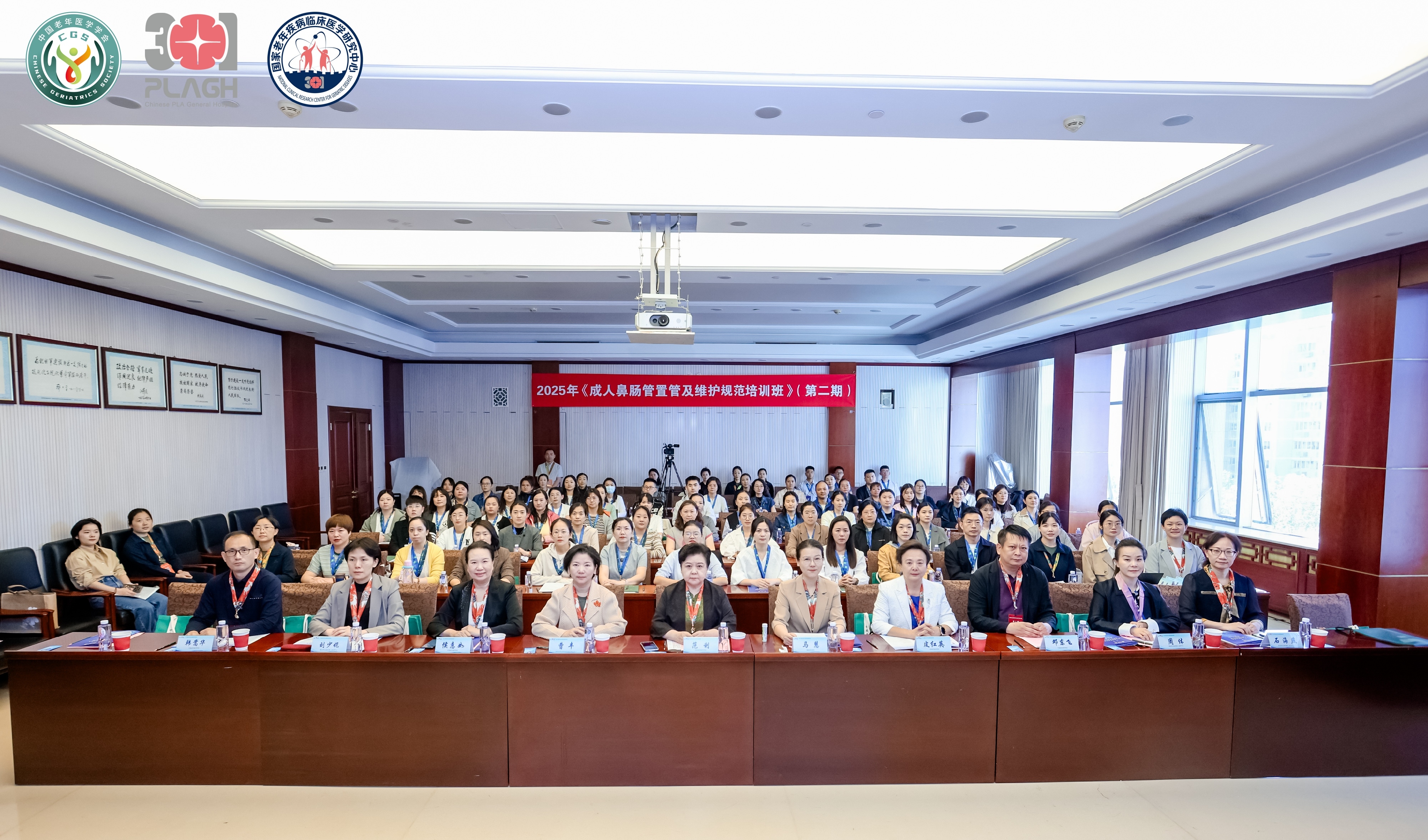
The experts of the Society and the Department of Gastroenterology of the Second Medical Center of the PLA General Hospital have spent 10 years conducting in-depth exploration and research on the bedside catheterization technology of nasointestinal tubes. They were the first in China to standardize aspects such as blind insertion and catheterization of nasointestinal tubes, magnetic navigation catheterization, catheter maintenance, and jejunal feeding, forming a technical system of bedside nasointestinal tube catheterization that integrates "scientific, precise and professional" features. It has successively taken the lead in releasing two group standards, namely "Adult Nasointestinal Tube Indwelling and Maintenance" and "Specification for Electromagnetic Navigation Catheterization of Nasointestinal Tubes". The former was promoted as a model on the National standard information Platform for the Belt and Road Initiative, while the latter was rated as a high-quality group standard in Beijing, filling the gap in the standards for nasointestinal tube catheterization in China. Since the application and promotion of the achievements, more than a thousand cases of catheterization and subsequent management have been completed in nearly 20 provinces and cities across the country. Among them, there were more than 300 cases of catheterization for the elderly, severe cases and difficult cases, and the highest age of catheterization reached 108 years old. During the epidemic, provide a safe nutritional access for patients with mechanical ventilation and prone position ventilation in the treatment of severe pneumonia. Household catheterization for elderly people living at home has opened up a new way to solve the problems of home care under the "9073" elderly care model. In 2024, this technology won the third prize of the "Chinese Nursing Association Science and Technology Award", the highest-level scientific and technological award in the field of nursing in China, further highlighting the authority, influence and leading position of this nursing team in the field of nasointestinal catheterization.
The first training course on "Adult Nasointestinal Catheterization and Maintenance Standards" hosted by the Chinese Geriatrics Society in 2024 came to a successful conclusion and received a warm response. The first batch of graduates returned with a full load of knowledge and used what they had learned to build safe and precise enteral nutrition pathways for nearly a thousand patients in their respective positions. These accumulations and precipitates have laid a solid theoretical foundation and accumulated rich practical experience for the launch of this training course. With the strong support of leaders at all levels and nursing experts from the Chinese Geriatrics Society and the General Hospital of the People's Liberation Army, this training course, as a national-level continuing education project, has ushered in its second session. This training course once again attracted the enthusiastic participation of clinical nursing professionals in the field of geriatric care and critical enteral nutrition from 33 hospitals in 20 provinces and cities across the country. Most of the trainees have experience in nasointestinal catheterization, and the proportion of head nurses, specialized nurses and scientific research backbones is more than half. The solid and profound professional foundation of the trainees has laid a solid foundation for the high effectiveness and high level of the training course.
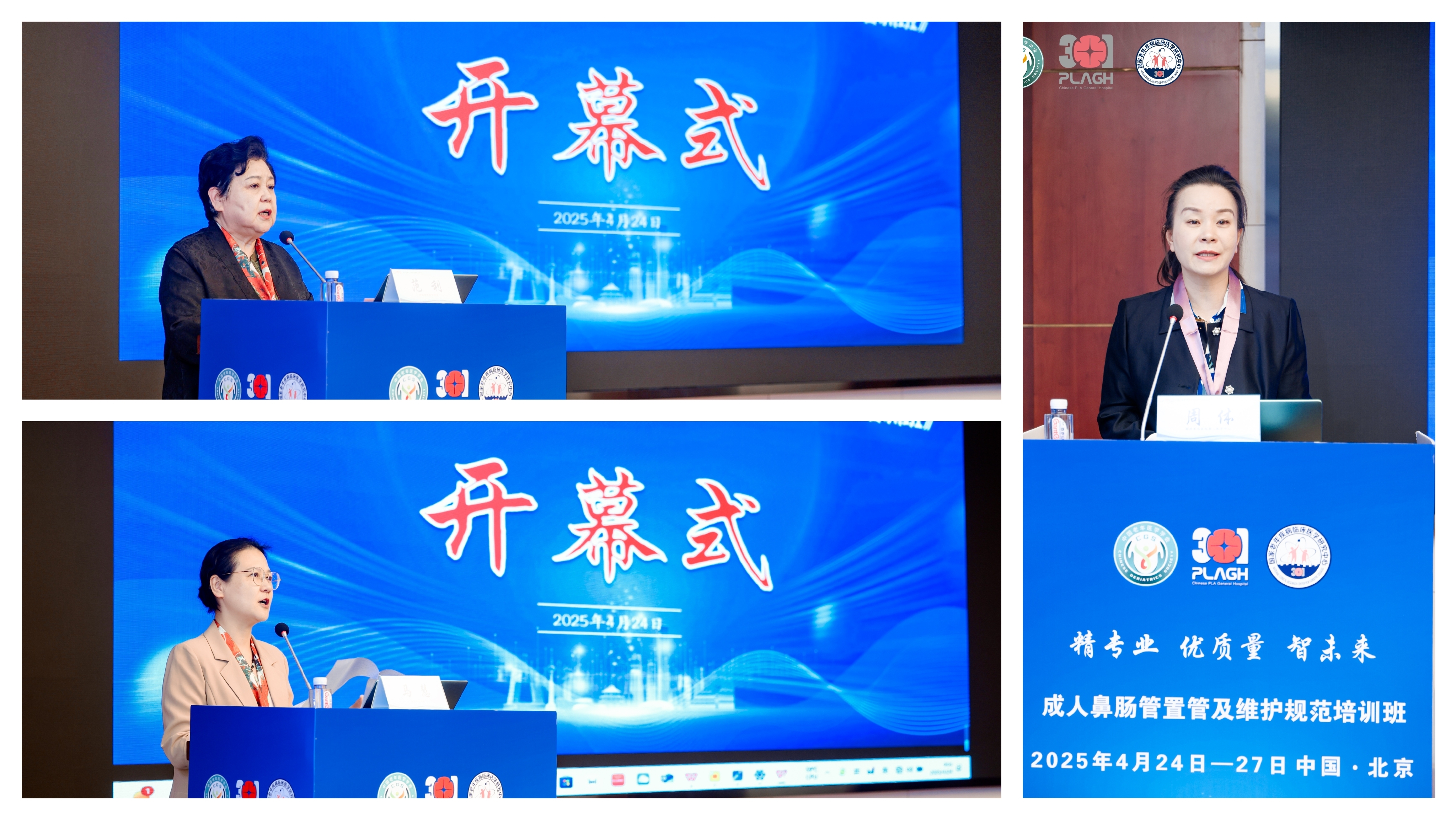
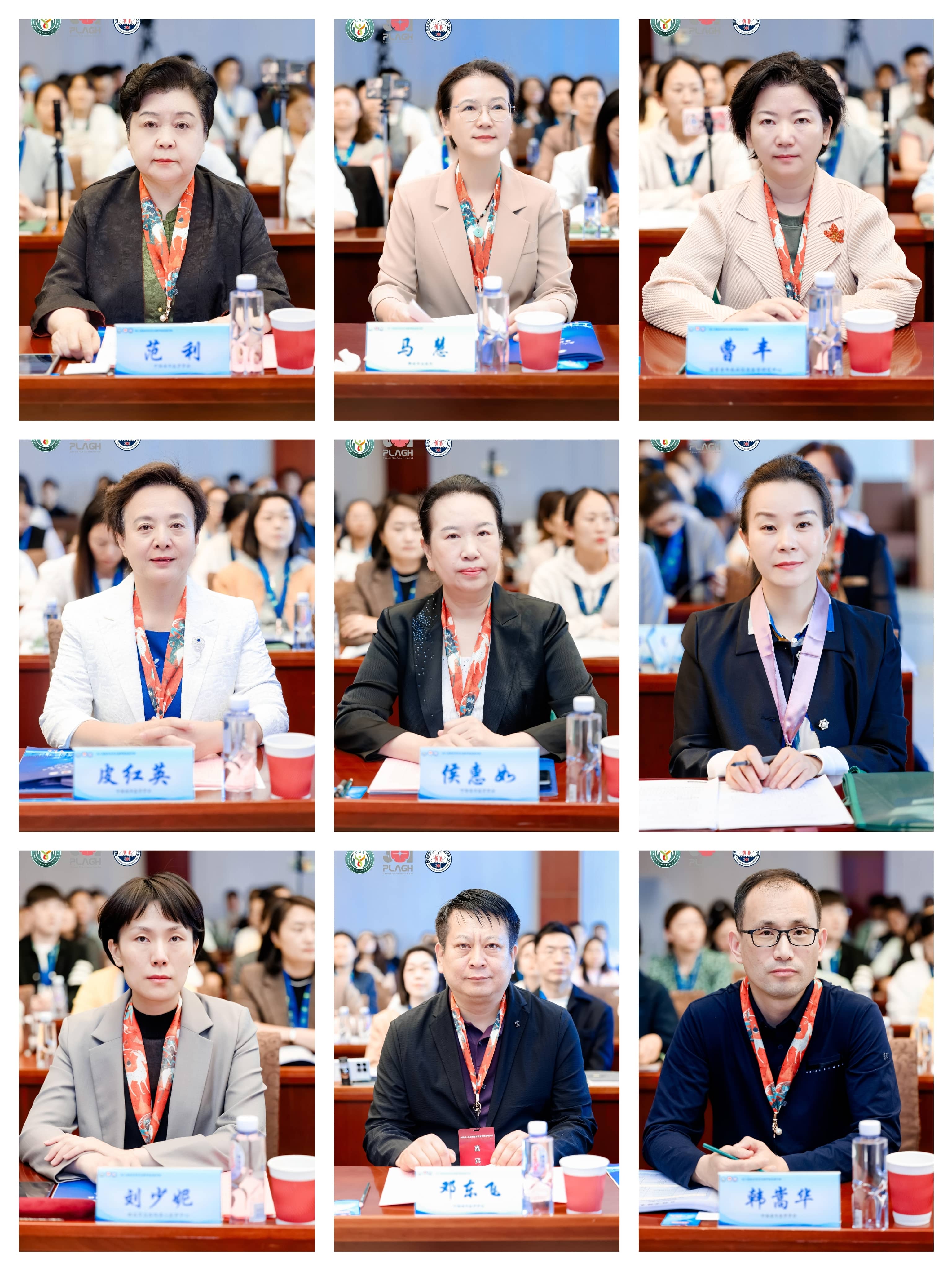
At the opening ceremony, Professor Fan Li, the president of the Chinese Society of Geriatrics, Professor Cao Feng, the vice president of the society and the director of the Institute of Geriatrics at the Second Medical Center, Professor Hou Huiru, the vice president of the society, and Professor PI Hongying, the president of the Medical Care Branch of the Chinese Society of Geriatrics; Director Ma Hui of the Nursing Department of the General Hospital of the People's Liberation Army, Director Zhou Ti and Deputy Director Liu Shaoli of the Nursing Department of the Second Medical Center, Deputy Secretary-General Deng Dongfei and Director Han Songhua of the Academic Training Department of the Chinese Geriatrics Society attended the event together. Director Zhou Ti presided over the opening ceremony. President Fan Li and Director Ma Hui delivered speeches at the opening ceremony, extending a warm welcome to all the nursing colleagues present. They expressed the hope that this training would promote the standardized development and popularization of bedside nasointestinal catheterization techniques and further enhance the quality of enteral nutrition care services for patients.

This training course closely follows the cutting-edge theories and the latest technological developments in enteral nutrition, inviting many senior experts in the industry to give lectures, and builds a high-quality learning and exchange platform for the trainees. The theoretical courses are divided into six major modules: keynote speeches, standard interpretation, catheterization techniques, nutritional safety, scientific research innovation, and student experience sharing. In the keynote speech module, President Fan Li of the Chinese Society of Geriatrics came to the scene in person to give a special lecture titled "The Challenges of Geriatrics Development to Nursing Work", elaborating in detail on the current situation of aging in China and encouraging the participants to contribute their wisdom and strength to achieving the goal of healthy aging. President PI Hongying of the Medical Care Branch of the Chinese Society of Geriatrics presided over the event and served as a special guest commentator. Director Wang Yu from the Department of Geriatrics at Peking University Aerospace Clinical Hospital delivered a lecture titled "Dynamic Monitoring, Evaluation and Management of Nutrition in Elderly Patients with Severe Illness", elaborating in a simple and understandable way on the characteristics of enteral nutrition in the elderly, and proposing reasonable feeding strategies and assessment and monitoring methods for critically ill patients. Professor Wang Gangshi from the Department of Gastroenterology of the Second Medical Center of the PLA General Hospital delivered a lecture titled "Comprehensive Assessment and Management of Indigestion and Nutrition in the Elderly", elaborating in detail on the diagnosis and treatment plans for indigestion in the elderly and the strategies for nutritional assessment and management.

In the standard interpretation module, Chief Nurse Ma Yanlan from the General Hospital of the People's Liberation Army, as the leading publisher of the standard, shared her experience in formulating and releasing the "Adult Nasointestinal Tube Indwelling and Maintenance Specifications", and interpreted the content of the standard. Ma Xiao from the Department of Gastroenterology of the Second Medical Center of the PLA General Hospital, as an important drafter, gave a detailed interpretation of the key points of the group standard "Specification for Electromagnetic Navigation Catheterization of Nasointestinal Tubes". Mi Yuanyuan from the Department of Critical Care Medicine, Union Hospital, Tongji Medical College, Huazhong University of Science and Technology, as the main drafter of the "Expert Consensus on the Prevention and Management of Common Complications of Enteral Nutrition Therapy for Critically Ill Patients in China", elaborated in depth on the prevention and intervention of enteral nutrition complications such as diarrhea, aspiration, and high-level gastric residual volume in critically ill patients.
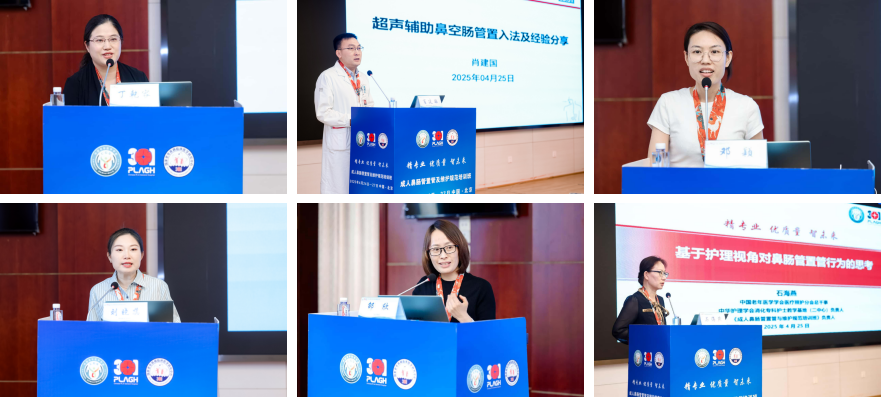
In the catheterization technology module Deputy Chief Nurse Ding Ganrong from the Department of Critical Care Medicine of West China Hospital of Sichuan University, Deputy Chief Physician Xiao Jianguo from the Department of Critical Care Medicine of the First Medical Center of the PLA General Hospital, Head Nurses Deng Ying and Shao Xin from Beijing Hospital, and Deputy Chief Nurse Liu Xiaorui from the Department of Hepatobiliary Surgery of Xi 'an Aerospace General Hospital respectively presented on electromagnetic navigation nasointestinal tube catheterization technology, ultrasound-assisted nasointestinal tube catheterization technology, blind insertion and catheterization technology of three-chamber feeding tubes, and snail Experience sharing was conducted on the rotary nasojejunal tube catheterization technique and the liquid sac jejunal tube catheterization technique. Nurse-in-charge Shi Haiyan from the Department of Gastroenterology at the Second Medical Center of the PLA General Hospital shared her practical and management experience in catheterization under the title of "How to Smoothly Carry Out Nasointestinal Catheterization Work in Clinical Practice", focusing on the catheterization operation principles of "tailoring to individual differences, local conditions, and materials".
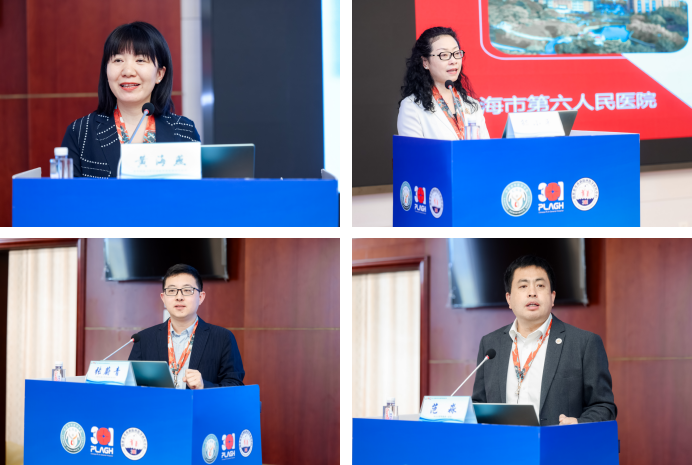
In the nutrition safety module, Nurse-in-Charge Huang Haiyan from the Department of Critical Care Medicine of Union Hospital, Tongji Medical College, Huazhong University of Science and Technology analyzed the prevention of refeeding syndrome from multiple dimensions such as risk identification, nutrition management, and clinical monitoring. Professor Shao Xiaoping from the Department of Critical Care Medicine of Shanghai Sixth People's Hospital gave a theoretical explanation and shared practical experience on the risk assessment and prevention of enteral nutrition aspiration. Chief Nurse Zhang Weiqing from Ruijin Hospital Affiliated to Shanghai Jiao Tong University introduced the methods and important roles of nursing ultrasound in evaluating the swallowing function, gastrointestinal function and muscle evaluation of patients undergoing enteral nutrition. Dr. Fan Miao, a chief physician from the Department of Radiology of the First Affiliated Hospital of Sun Yat-sen University, gave a vivid interpretation on the determination of catheter positions under X-rays. The atmosphere on the spot was lively and the interaction was frequent.

In the scientific research and innovation module, Vice President Cao Zuohua of the Chinese Journal of Nursing, focusing on "Nursing Innovation and Topic Selection of Scientific Research Papers", analyzed the difficulties in nursing scientific research innovation and topic selection and put forward valuable suggestions. Director Chen Yuequn from the Intensive Care Unit of Lishui Central Hospital in Zhejiang Province introduced the latest "visualized Nasointestinal catheterization Technology" to the trainees, which aroused great interest among the participants.

In the student experience sharing module, the first batch of student representatives were invited to share and exchange their learning experiences and catheterization practices with the new students. Yuan You, the head nurse of the Intensive Care Unit of the Affiliated Hospital of Zunyi Medical University, shared her insights on "Applying for Enteral Nutrition-related Projects and writing SCI Cases". Zhu Huiya, the head nurse of the Department of Cardiovascular Medicine at the Second Medical Center of the PLA General Hospital, introduced the scientific research practice of "The design of the Care Management Plan and Platform for Home-based Managed Elderly People". Yang Jianmin, the head nurse of the Department of Geriatric Medicine at Taikang Yanyuan Rehabilitation Hospital, shared her experience and thoughts on the rapid career growth brought about by the continuous improvement of nasointestinal catheterization skills after participating in the training course.
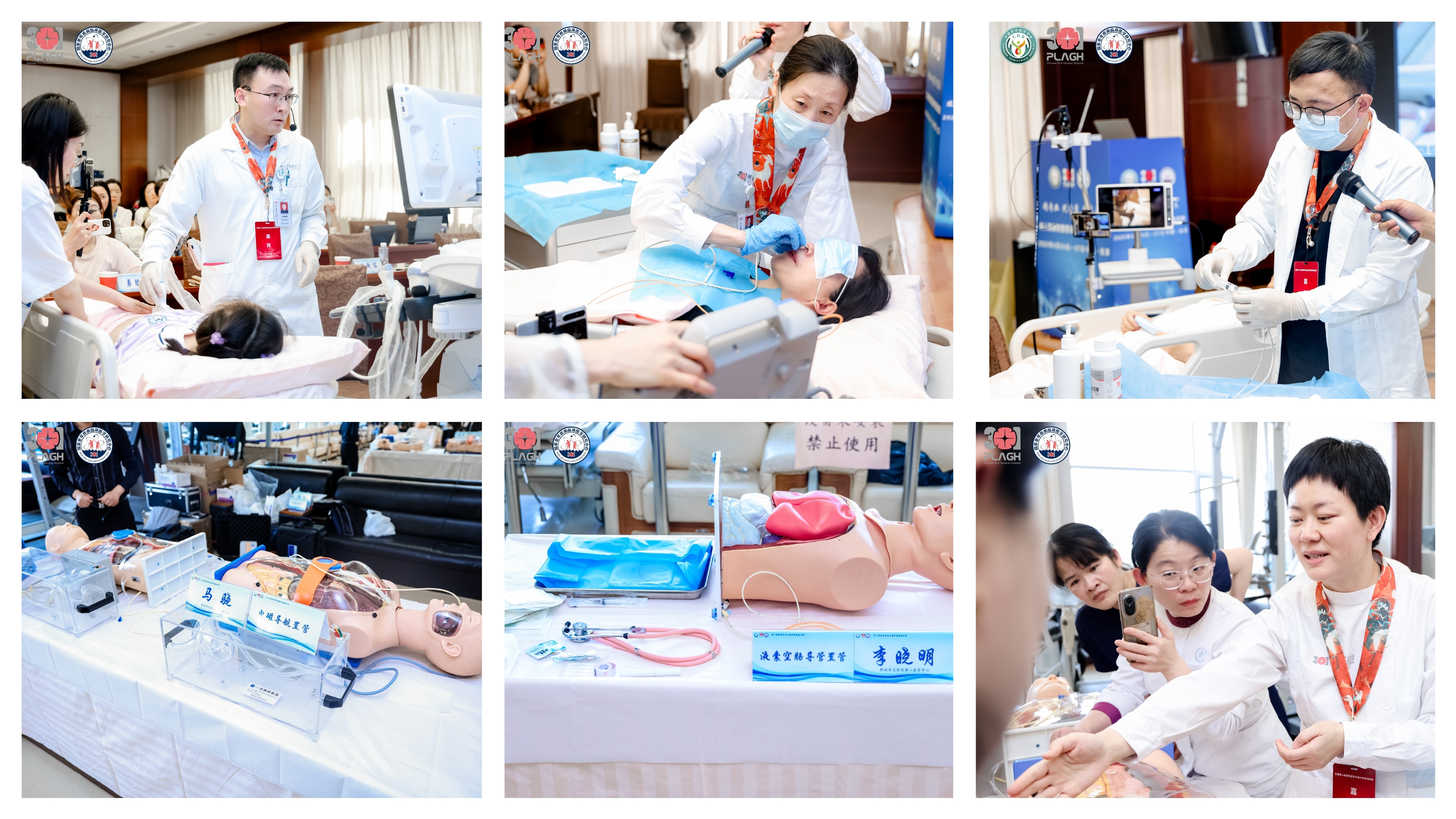
In terms of practical operation training, this training course adheres to the principle of being down-to-earth and achieving practical results. It invited senior catheterization experts to demonstrate spiral nasointestinal tubes, three-lumen feeding tubes, fluid sacs and jejunal catheters, and magnetic navigation catheters using the most advanced intelligent models in China. In addition, in order to enable the trainees to deeply understand the operation skills in a real clinical environment, the training course also recruited volunteers to conduct real-person practical operations. After the operation, the volunteers were invited to share their experiences of catheterization. This has maximized the combination of theory and practice in the teaching mode for the trainees and laid a solid foundation for them to better serve patients in the future. The trainees all expressed that they had benefited a lot. The training received a good response.
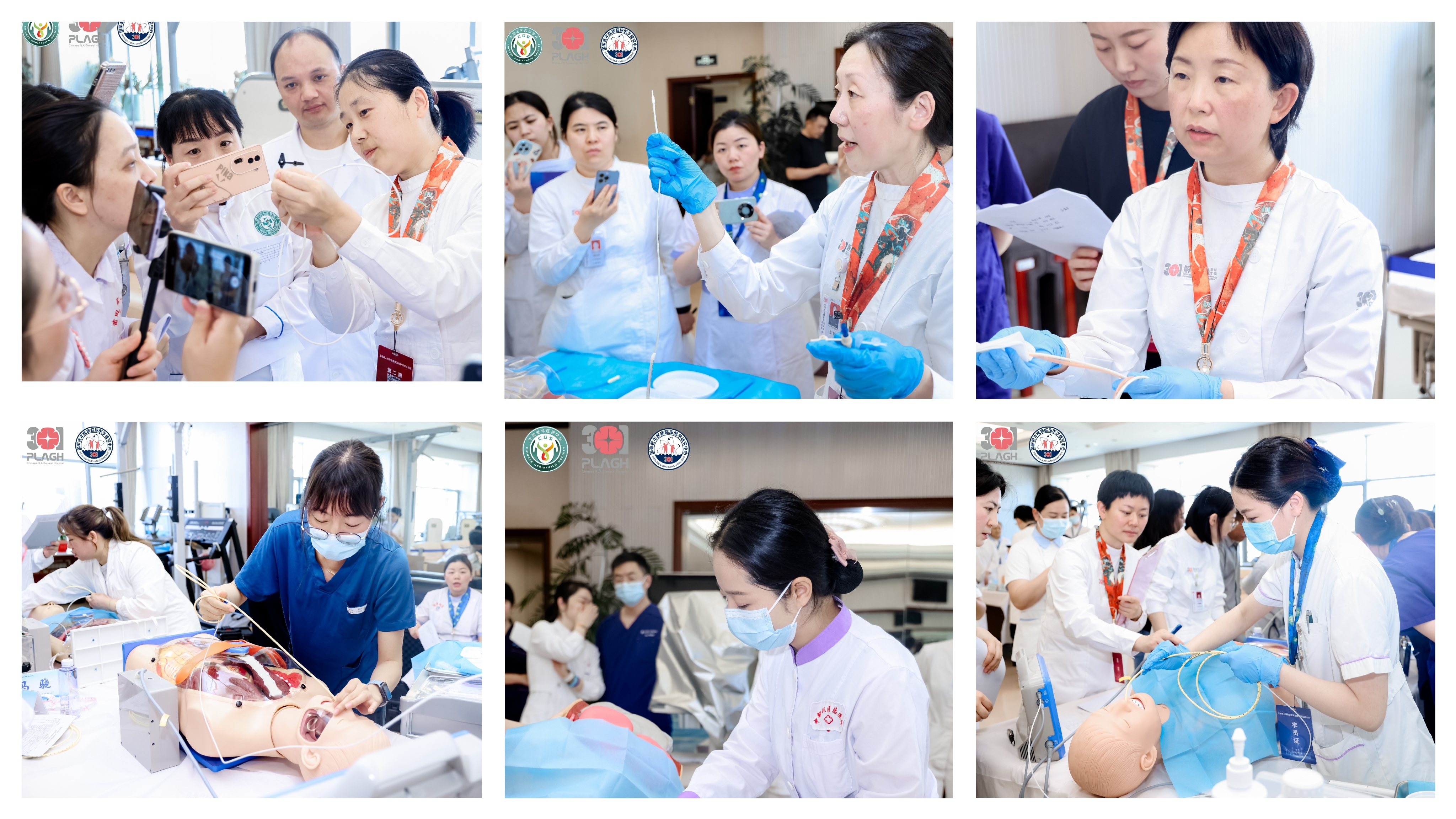
The greatest truths are the simplest; hard work is the key. The successful holding of the training course on nasointestinal catheterization technology once again will help further promote this leading nursing technique across the country, facilitate the standardization and normalization of bedside nasointestinal catheterization technology, fill the huge gap of professional nursing talents in nasointestinal catheterization, and is of profound significance for ensuring patient safety and improving the quality of enteral nutrition nursing services in China. With perseverance and dedication, we will not waste our youth. We will constantly explore and innovate, empower nursing services with technology, continuously promote the clinical transformation of innovative achievements, contribute to the development of healthy aging, and contribute more wisdom and strength to the construction of a healthy China.
Prev
The 16th Advanced Training Course on Clinical Practice Skills of Geriatrics organized by the Chinese Society of Geriatrics was successfully held in Beijing
Next
The Chronic Disease Prevention and Management Branch of the Chinese Society of Geriatrics launched a series of free medical consultation activities for the 37th Patriotic Health Month, with the theme of "Party Flag Leading Health, General Practice Services Warming People's Hearts"

